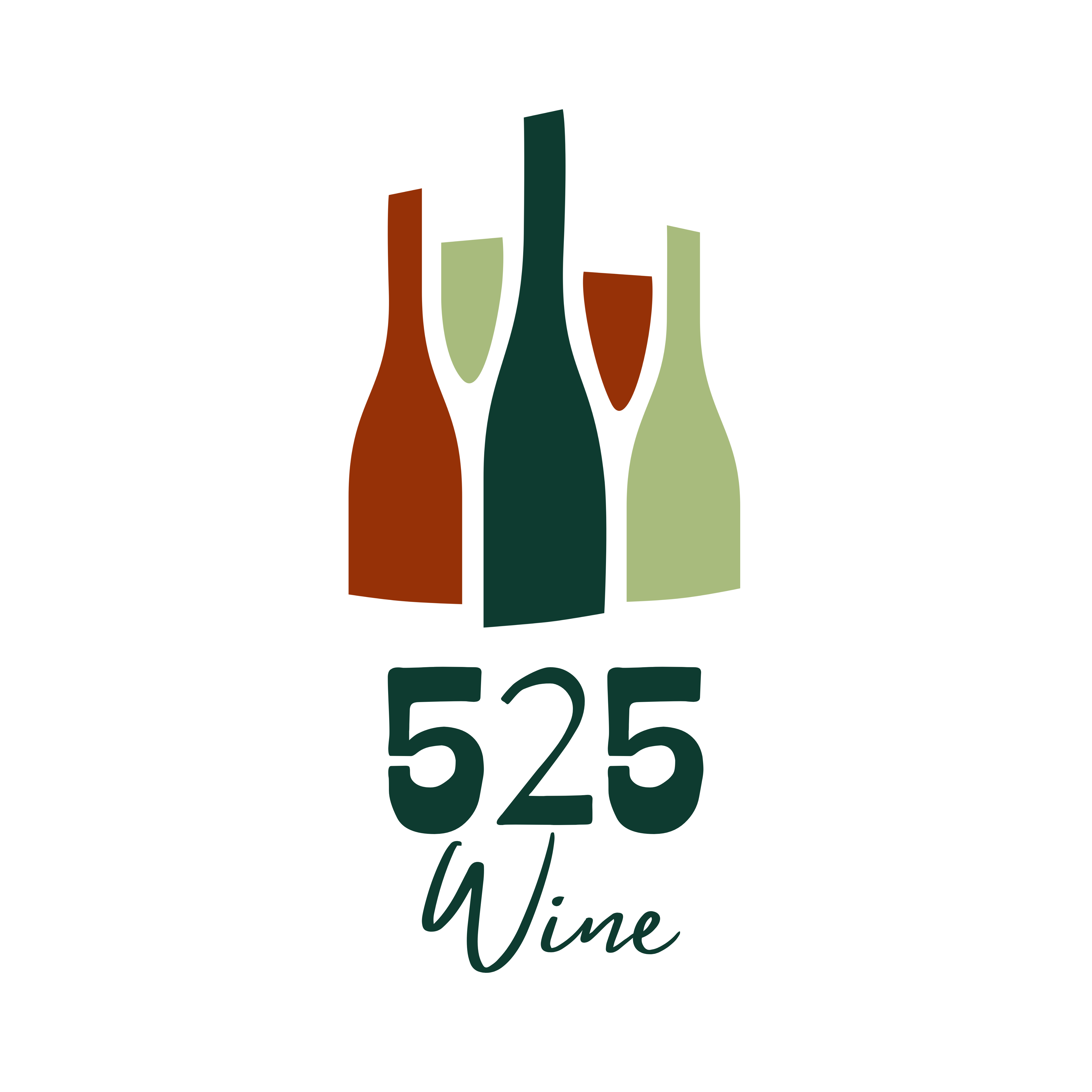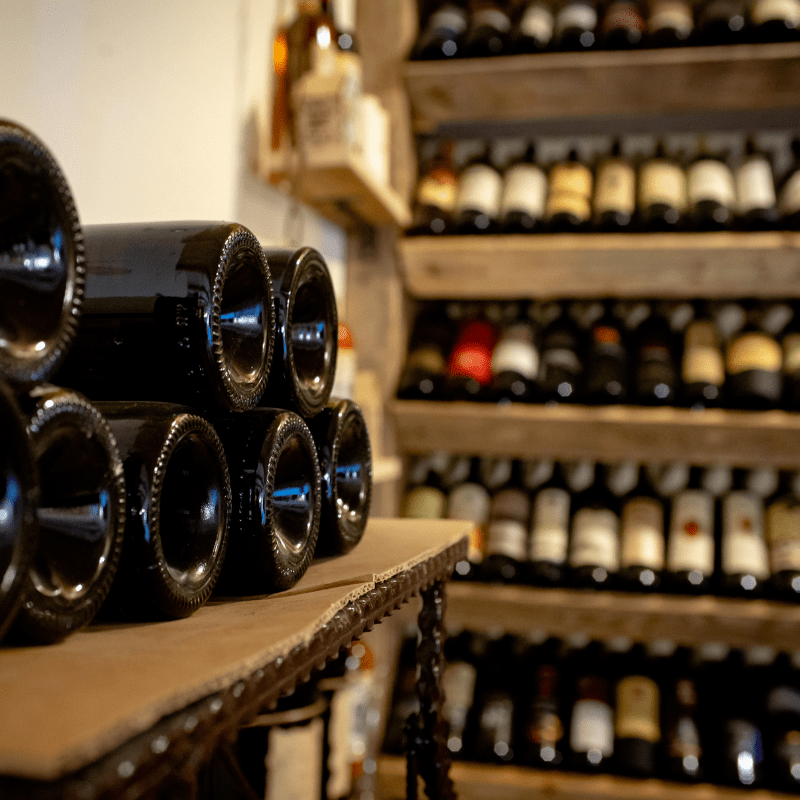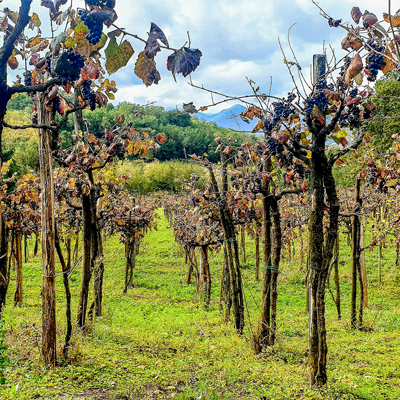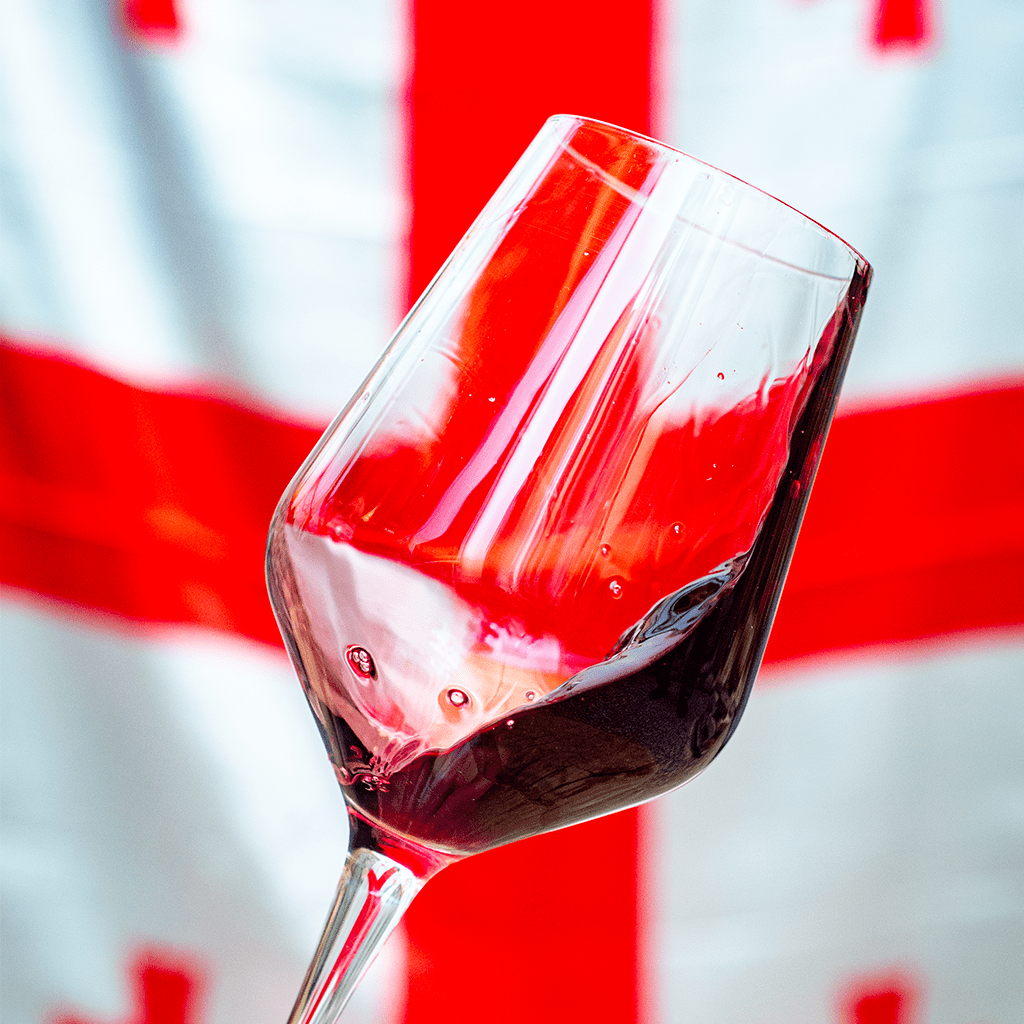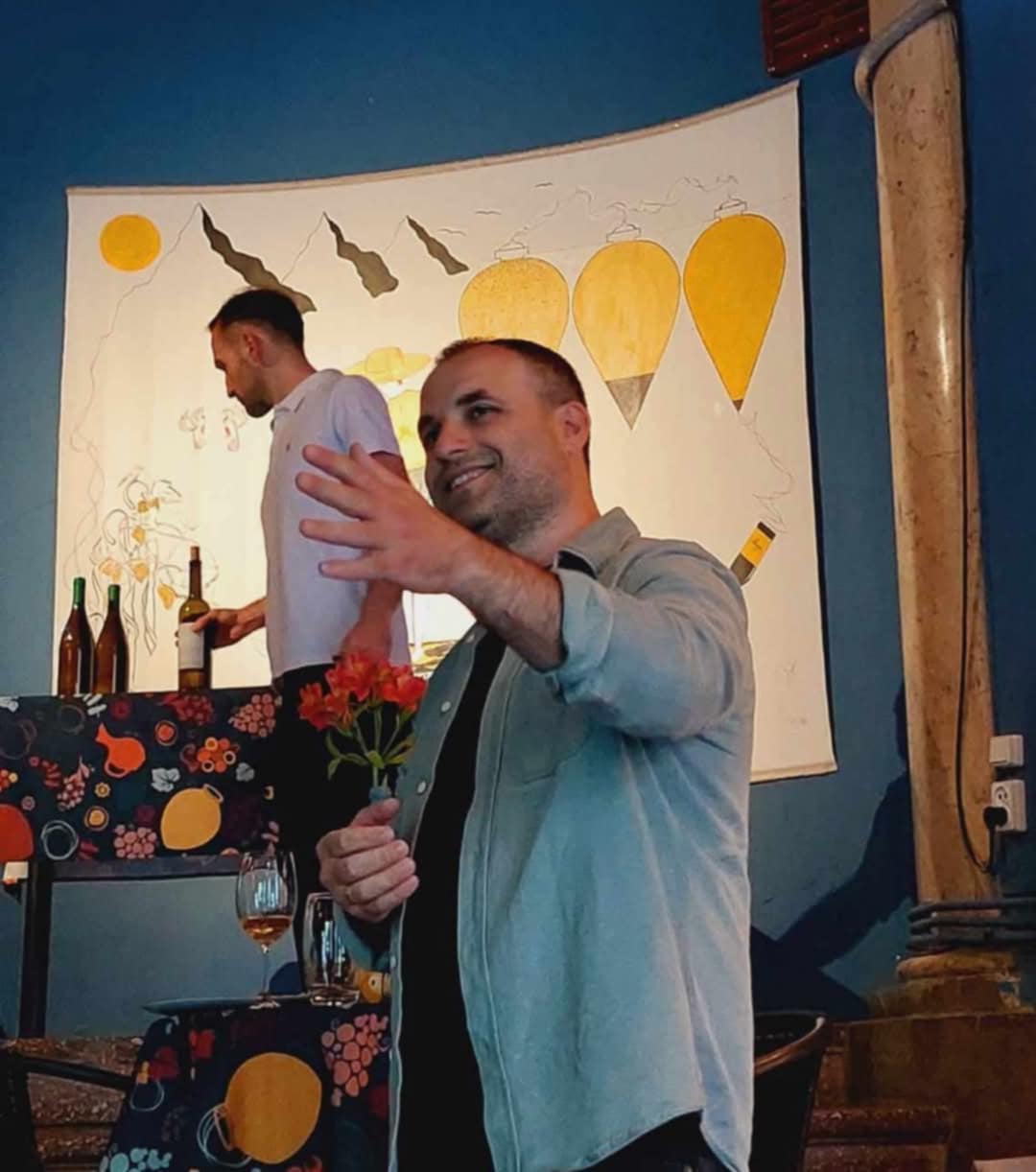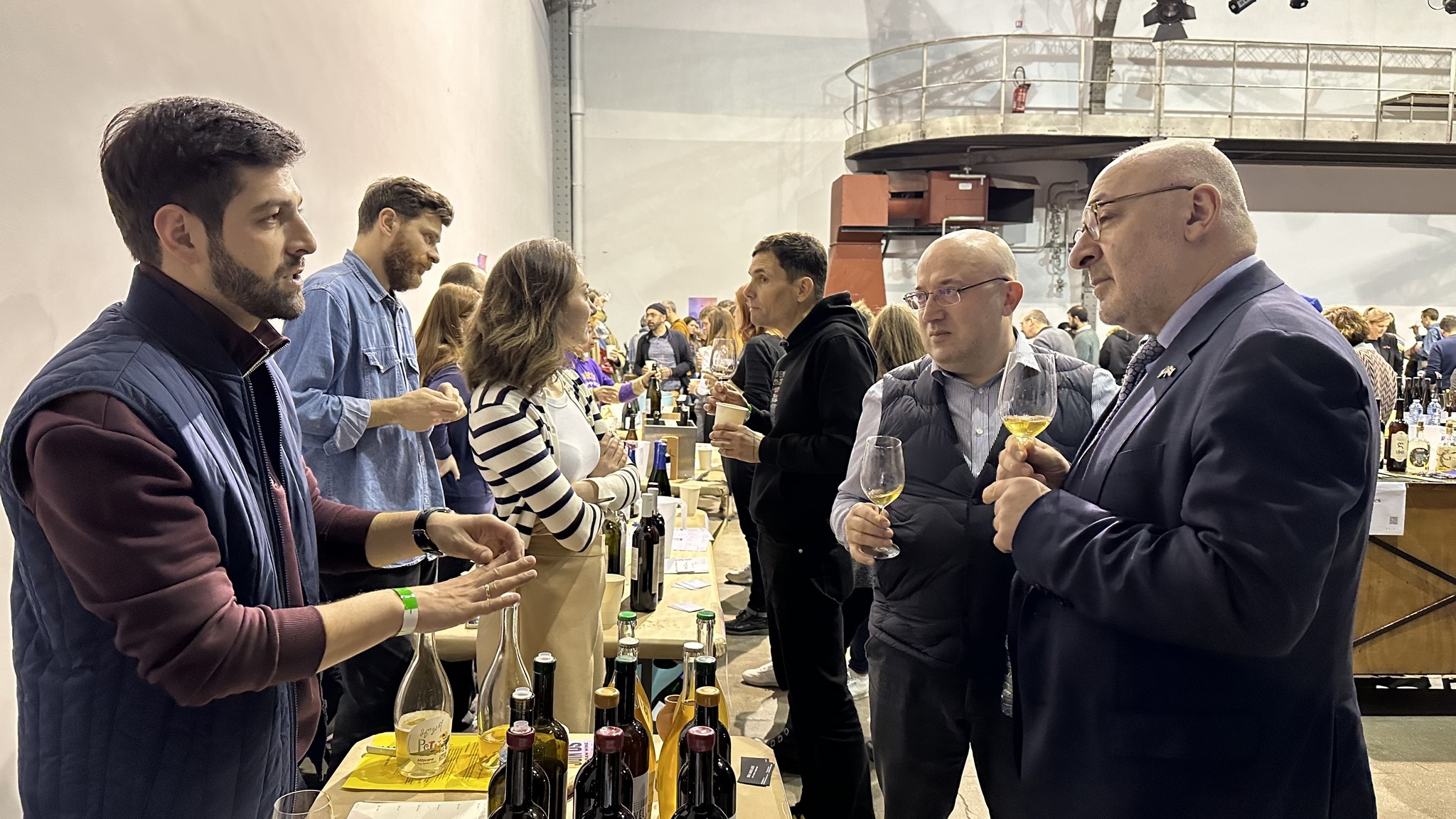News . 06-10-2025
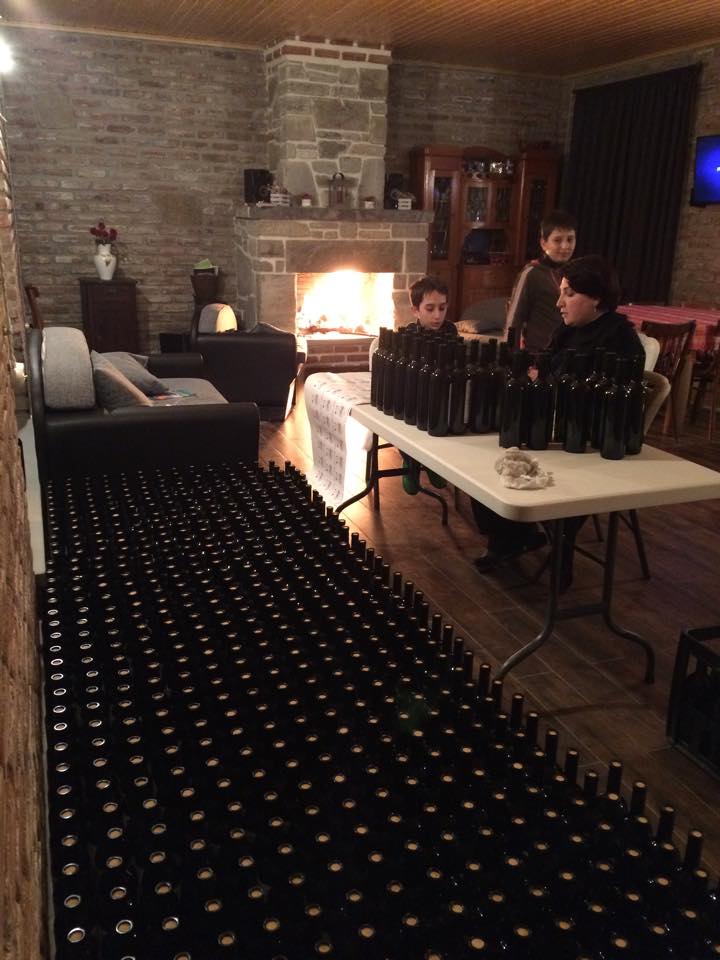
What challenges do natural wine producers face when bottling wine
Bottling wine is one of the most important and responsible processes in winemaking. Winemakers must consider several factors before bottling wine. There are various obstacles, but there are also ways to overcome them. The bottling process is constantly evolving, which can improve the quality of the final product. Even the best wine can become unsalable and unusable after bottling if the winemaker uses an unsuitable stopper or stores the bottled wine in improper conditions.
Nwa.ge interviewed winemakers from the Natural Wine Association about their wine bottling processes and the challenges they face.
Mikheil Dolidze from Marani “Kasreli” highlighted the limited selection of wine bottles in Georgia. Initially, they relied on the Ksani factory, but after it ceased production, they struggled to find affordable imported bottles, avoiding Russian ones and ultimately using Armenian bottles. Dolidze emphasized the importance of selecting the right stopper, noting that while bottle options are limited, Georgia offers a wide variety of corks in terms of quality, variety, and price. “Kasreli” has partnered with a company to address this issue.
The timing of bottling wine is crucial for winemakers, and their approaches can vary. Some prefer the quiet summer months when the cellar is less active, while others choose the winter period when new wine is sealed, and the cellar is on a break.
Tamar Gerliani, “Malati” Winery: “I typically bottle wine before the harvest. I believe that for the wine’s stability and to enhance its organoleptic characteristics, it should spend at least one year in the Qvevri. Fortunately, we don’t face many difficulties in this process and can bottle 5,000 bottles in three days.”
Giorgi Mshvenieradze, Mshvenieradzes’ Marani: “The primary factor in bottling wine is its readiness, both in terms of taste and stabilization. For small wineries, the season also matters. For instance, we never bottle wine during the autumn fermentation period. We also consider the weather, avoiding bottling on rainy days. Typically, we bottle wine either in spring or December.”
Lekso Tsikhelishvili, “Lekso Tsikhelishvili’s Winery”:
“I usually try to bottle wine in winter. This is done in the basement, and I leave the bottled wine there as well. If the wine is well stored, there will be no problem during bottling. As for the bottles, in recent years, mostly Russian-made bottles have been imported and used throughout Kakheti.”
Zaza Gagua, “Martvili’s Marani”: “A person is always learning, and I am developing slowly. I used to bottle wine in May, and I often had problems with incomplete malolactic fermentation. Now I try to bottle it before August-September, and I think it is the right decision. I keep the finished wine in a stainless container until I have an order and only then bottle it.”
What drives up bottling costs? In this regard, the most problematic issue for small wineries is navigating bureaucratic barriers. According to Mikheil Dolidze, from the “Kasreli” practice, it can be said that from harvesting to bottling, the wine is subjected to laboratory research on average 10 times, mainly in non-accredited laboratories, due to the lower cost. Before bottling, the winery officially registers the wine lot and applies to an accredited laboratory, where it also orders a test that will be useful for export certification. Accordingly, the bottling costs also increase.
Proper and high-quality bottling equipment is also an important factor. Most of the members of the Natural Wine Association have mechanical equipment for bottling wine, and some who produce relatively large quantities have semi-automatic machines. At such times, the qualification of the staff involved in bottling the wine is also significant.
“The bottling of wine is a kind of culmination of the great process that begins every year in October with the preparation for the next vintage. It is a great celebration that we share as much as possible with our family and friends. Bottling is definitely accompanied by feast - the kind that only we Georgians know,” one of the winemakers told us, and these words probably best describe the importance of the bottling process.
Levan Sebiskveradze
